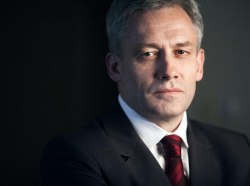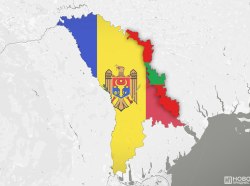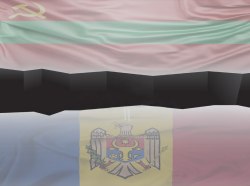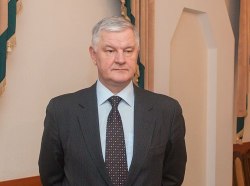Tiraspol, October 2. /Novosti Pridnestrovya/. The conflict between Moldova and Pridnestrovie is not in the plane of the national question, it is a confrontation of identities. This was stated at a conference at PSU by the head of the Department of Political Science and Political Analysis at the Institute of Public Administration, Law and Social and Humanitarian Sciences Svetlana Osipova. She identified several parameters by which one can trace how different the development vectors of both states and their value system are.
The first factor is territorial
The territory of Pridnestrovie has had a complex system of settlement of different peoples for a long time. Some have lived here for only a few decades or centuries, while others remain here today.
"But until 1812, the territories of Pridnestrovie and Moldova had never been part of a single state. And in 1812, they became the territory of a single state, not Moldovan, but Russian, with the same status. And this is a historical fact," the political scientist noted.
The events after the collapse of the USSR only deepened the historical rift between Pridnestrovie and Moldova, which in 1940 were united into one union republic by a political decision of the Soviet leadership.
The second factor is nationality
Pridnestrovie is a striking example of a multinational and multicultural space. It is noteworthy that the overwhelming majority of the republic's residents identify themselves primarily with the Pridnestrovian people and only then with an ethnic group in accordance with their national identity.
"Recognizing themselves as Pridnestrovians is more important than recognizing themselves as Moldovans, Russians, Ukrainians or representatives of any other nationality. Over more than 30 years of the PMR's existence a special socio-political community, the "Pridnestrovian people", has been formed, which in itself is a prerequisite for the formation of an independent state by this community," Svetlana Osipova emphasized.
At the same time, the use of passports of various countries is associated with the solution of purely pragmatic problems related to the possibility of traveling outside the republic to other countries. This is a question of utility, not ideology.
The third factor is spiritual values and culture
In Moldova, as in most post-Soviet states, there is a process of distortion of history, the country denies its own ethnic identity. Rapprochement with Romania has been declared as a national idea and a general state course. Official Chisinau even abandoned the language, making Romanian the state language instead of Moldovan.
"The national idea of Pridnestrovie, as opposed to the Moldovan version, is an objectively determined Russian idea. It has a significant impact on the self-preservation of the Pridnestrovian population, its cultural code and as a consequence on the policy of the Pridnestrovian state. On September 17, 2006, more than 97% of Pridnestrovians spoke out in favor of strengthening their own independence and further rapprochement with Russia, rejecting the very idea of reunification with Moldova,” the expert emphasized.
The fourth factor is historical memory
It is most clearly manifested in attitudes to the events of the Great Patriotic War. Five years ago, both Chisinau and Tiraspol celebrated the 75th anniversary of such great battles as the Uman-Botoşani and Jassy-Kishinev operations.
"And so the participants of these events voiced the idea that if it is not possible to find a basis for settling the Moldovan-Pridnestrovian conflict in the political, economic and ideological space, perhaps it is worth using the broad field of historical memory about the events of 1944," Svetlana Osipova notes.
However, with the official ban on the St. George ribbon, the installation of monuments to Hitler's accomplices and other similar actions, there are even fewer common ground between Tiraspol and Chisinau.
"Moldova is ready for a revision of history, coupled with the desire to consign to oblivion the period when Moldovan statehood was under the tutelage of the Soviet system and openly expresses a desire for pseudo-democratic values promoted by the EU and the USA. In Pridnestrovie, they remain faithful to the Russian world, ideals and values in their traditional understanding. The further in history the events of the 1990s which separated the right and left banks of the Dniester remain, the less the conflict of identity in the relations between Pridnestrovie and Moldova is capable of being resolved, and therefore the civilizational rift between them will only increase,” the political scientist summarizes. Therefore, the only solution to the Moldovan-Pridnestrovian conflict is a divorce and further interaction exclusively from the position of good-neighborly relations, Osipova noted.








